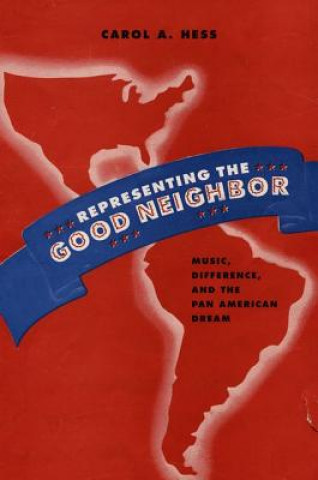
Dostava
Savjetnik za kupnju





Proizvod vam ne odgovara? Nema veze! Možete nam vratiti unutar 30 dana
 Poklon bon
u bilo kojoj vrijednosti
Poklon bon
u bilo kojoj vrijednosti
S poklon bonom ne možete pogriješiti. Za poklon bon primatelj može odabrati bilo što iz naše ponude.
Representing the Good Neighbor
 Engleski
Engleski
 230 b
230 b
30 dana za povrat kupljenih proizvoda
Moglo bi vas zanimati i


In Representing the Good Neighbor, Carol A. Hess investigates the reception of Latin American art music in the US during the Pan American movement of the 1930s and 40s. An amalgamation of economic, political and cultural objectives, Pan Americanism was premised on the idea that the Americas were bound by geography, common interests, and a shared history, and stressed the psychological and spiritual bonds between the North and South. Threatened by European Fascism, the US government wholeheartedly embraced this movement as a way of recruiting Latin American countries as political partners. In a concerted effort to promote a sameness-embracing attitude between the US and Latin America, it established, in collaboration with entities such as the Pan American Union, exchange programs for US and Latin American composers as well as a series of contests, music education projects, and concerts dedicated to Latin American music. Through comparisons of the work of three of the most prominent Latin American composers of the period - Carlos Chavez, Heitor Villa-Lobos and Alberto Ginastera - Hess shows that the resulting explosion of Latin American music in the US during the 30s and 40s was accompanied by a widespread - though by no means universal - embracement by critics as an exemplar of cosmopolitan universalism. Aspects shared between the music of US composers and that of their neighbors to the south were often touted and applauded. Yet, by the end of the Cold War period, critics had reverted to viewing Latin American music through the lens of difference and exoticism. In comparing these radically different modes of reception, Hess uncovers how and why attitudes towards Latin American music shifted so dramatically during the middle of the twentieth century, and what this tells us about the ways in which the history of American music has been written. As the first book to examine in detail the critical reception of Latin American music in the United States, Representing the Good Neighbor promises to be a landmark in the field of American music studies, and will be essential reading for students and scholars of music in the US and Latin America during the twentieth-century. It will also appeal to historians studying US-Latin America relations, as well as general readers interested in the history of American music.
Informacije o knjizi
 Engleski
Engleski
Kategorija




 Kako kupovati
Kako kupovati


















